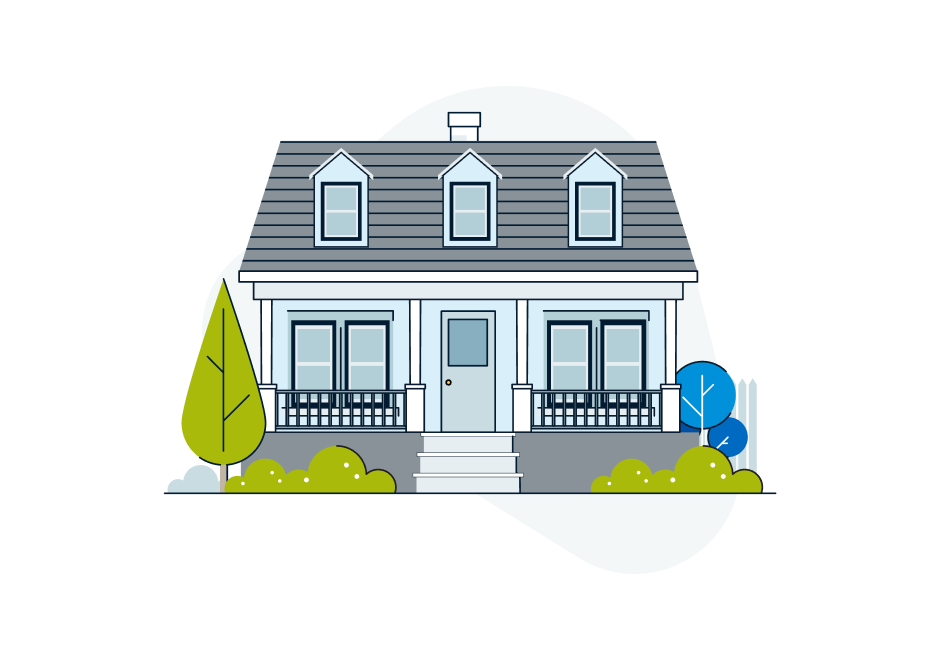Expense-wise, there's more to owning a home than your monthly mortgage payment. Below are some of the one-time closing costs you may need to pay:
- Default (or High Ratio) Mortgage Insurance Premium and PST (where applicable). Your lender requires this coverage if your down payment is less than 20% of the purchase price. This premium, minus the Provincial Sales Tax (PST), can be added to your mortgage balance. The PST must be paid at closing.
- Appraisal Fee (if applicable). Your bank will have hired an independent appraiser to determine the value of the property and whether it meets its lending criteria. This may or may not be required depending on the type of property being purchased.
- Down Payment. The portion of the purchase price that you furnish yourself.
- Bridge Financing (if applicable). If your home purchase closes before the sale of your current home, you'll need to finance the cost of the home purchase for a short period of time. Bridge financing is expensive and not recommended as a matter of course-talk to your lender if this situation applies to you.
- Estoppel Certificate (for condominium/strata units). Documentation of the condominium corporation's financial well-being and legal state.
- Interest Adjustment Costs. Most lenders expect the first mortgage payment one month after closing the purchase. If you close mid-month, however, some lenders expect the first payment, or at least the interest accrued during that time period, at the beginning of the next month, two weeks before you would normally expect. When arranging your mortgage, ask how interest is collected to the interest adjustment date.
- Legal/Notarial Fees and Disbursements. You will be required to retain a lawyer or notary to act for you in the purchase and mortgaging of the property, and you will be responsible for payment of all related fees and disbursements. Fees for these services may vary significantly, so you may wish to shop around before making your decision.
- Title Insurance. Title insurance is an insurance policy that protects you, the home owner, against challenges to the ownership of your home or from problems related to the title to your home. Talk to your lawyer or notary to see if a title insurance policy is right for you.
- Land Transfer Tax (Land Registry Tax). Most provinces levy a one-time tax (sometimes called the "Welcome Tax") based on a percentage of the purchase price of the property.
- Township/Municipality Levies (applicable to new homes within subdivisions). For such items as tree planting, school taxes and other items until they are assumed by the town/municipality.
- Property Tax/Utility Bill Adjustments. The purchase price of a resale home is always payable "subject to the usual adjustments" at closing. This means that any amount that the seller has already prepaid will be adjusted so that you pay the excess amount back to the seller, and vice versa. The most common adjustments occur on property taxes and utility bills that have been paid ahead of time.
- Certificate of Location (Property Survey). Required by the financial institution for mortgage approval, and by your lawyer or notary for transfer of ownership. Ensure that this certificate reflects improvements such as decks, patios or pools. If outdated, the offer to purchase should indicate whether the seller or you will incur the necessary expense to obtain the appropriate certificate.
- Upgrades (applicable in new home construction). Such items as hardwood flooring, granite kitchen countertops, additional ceiling height and so forth usually will increase the purchase price of your home, and can be paid for in cash or (in most cases) or added to the mortgage proceeds.
Keep other costs in mind as well
Will your new home need furniture? Carpets? Lighting? Window coverings? Appliances? Do you have the tools you need to maintain the lawn and gardens? Are you hiring movers or renting a truck? Will you need boxes, bubble wrap and tape for the move?
While these and other out-of-pocket costs aren't part of the real estate transaction, you still need to budget for them. Plan your expenses as much as possible. If necessary, decide what you can put off buying until later, after you move in and get settled.
Related Articles
Title Insurance
Learn MorePreparing for Closing Day
Learn MoreBudgeting for closing, moving and move-in costs
Learn More


